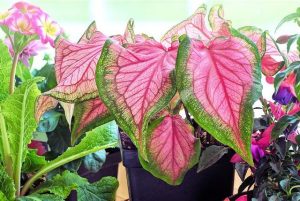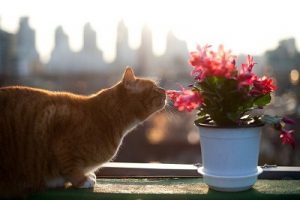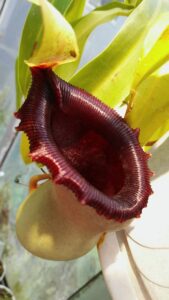Last Updated on October 1, 2023
A list of six succulents that are toxic to cats and potential risks they pose to our feline friends.
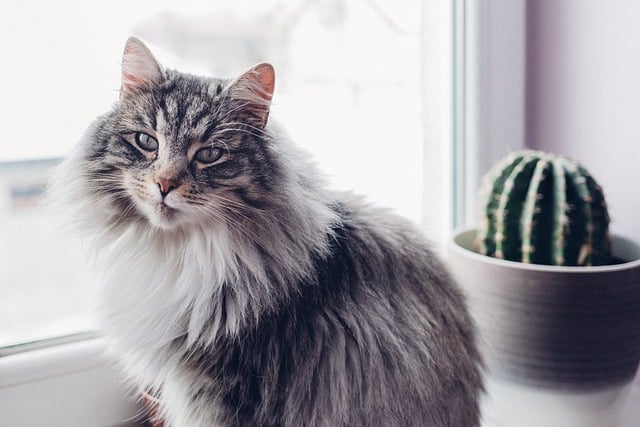
Are succulents poisonous for cats?
The short answer is yes, some succulents are bad for cats when ingested.
Toxicity can range from mild to severe, and I will describe what can happen if you cat chews any one of these plants.
Luckily, there are just a few succulents that are harmful for cats. The majority of succulent plants are non-toxic if ingested by a cat. I have an article dedicated to cat safe succulents, so check it out!
And after you read this post and take a good look at the provided pictures, you will remember forever which succulents should not be brought to your house if you have an indoor cat.
Let’s get to it!
Succulents toxic to cats
1. ALOE VERA (Aloe vera)

This one is a bummer! Known for centuries for its healing properties, widely used in natural products, believe it or not, aloe vera is a bad plant to be chewed by your cat.
Why, you wonder?
A chemical aloin in aloe vera when ingested acts as a laxative and can cause diarrhea, cramps, vomiting, tremors in pets. Its toxicity for pets is moderate to strong. When your cat eats a piece of aloe vera, you should notify your veterinarian.
Additionally, according to the latest toxicology report, aloe vera may have tumor-promoting activities.
Also, if your cats are allergic to latex, aloe vera can cause skin irritation.
So, keep aloe vera away from your kitty, and go easy on this plant for your own use too.
2. CORAL CACTUS (Euphorbia lactea)
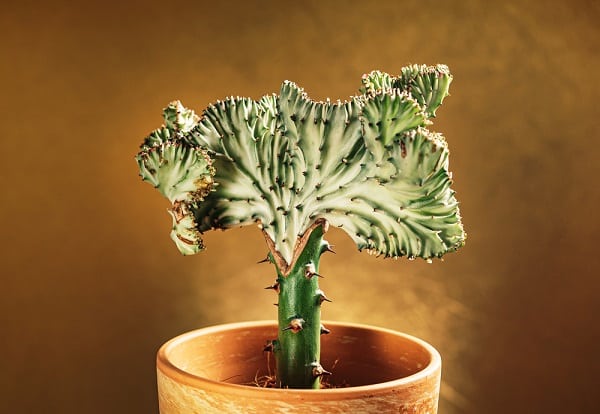
Similar in appearance to ocean coral, Coral cactus is actually two succulent plants joined together to create an unusual look.
And though it looks cool and makes a great “conversation piece”, if you have cats, Euphorbia lactea is another succulent to avoid. When ingested by a cat it can cause mouth irritation and vomiting.
3. JADE PLANT (Crassula ovata)
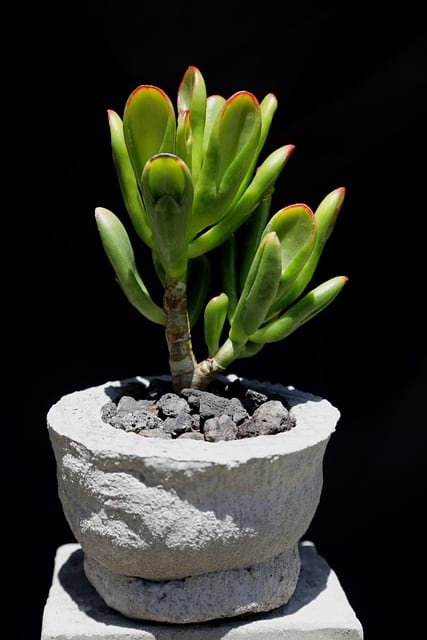
Though the Jade plant is considered to be a great indoor plant for attracting money luck to your house, it’s not so lucky for your cat to chew on it. Jade is mildly toxic and can cause vomiting in a cat.
So, while you may want to keep the Jade plant as part of your decor, it’s crucial to ensure it’s placed in an area where your cat can’t access it to avoid any potential health risks.
4. KALANCHOE (Kalanchoe blossfeldiana)
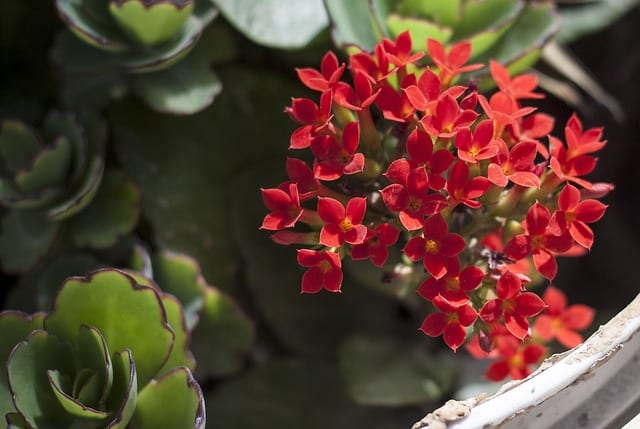
Ah, Kalanchoes, those stunning soft succulents that add a touch of elegance to any space. However, when it comes to our furry feline companions, these plants are far from being safe.
As much as we’d love to admire their vibrant colors and delicate blooms, it’s essential to remember that Kalanchoes are not safe for cats and can wreak havoc on a cat’s delicate system.
If your curious kitty decides to take a taste, it could lead to some serious tummy troubles, causing gastric upset that no one wants to deal with. And, in rare cases, these enchanting plants have even been known to cause abnormal heart rhythm in our precious feline friends.
So, while Kalanchoes may be visually appealing, it’s best to keep them out of reach from cats to ensure their well-being.
5. SNAKE PLANT (Sansevieria trifasciata)
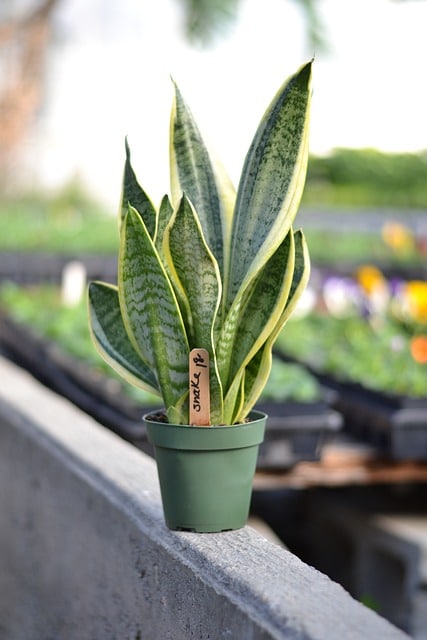
Snake Plant, also known as Mother-In-Law’s Tongue due to its sharp, tongue-shaped leaves, is a popular succulent that adds a touch of elegance to any room.
Unfortunately, when it comes to cats, caution should be exercised. This captivating plant may be visually appealing, but it’s important to note that it can be mildly toxic to cats if chewed on.
So, it’s best to keep this indoor plant out of your cat’s reach to prevent any potential health issues and ensure a safe environment for your furry companion.
6. STRING OF PEARLS (Senecio rowleyanus)
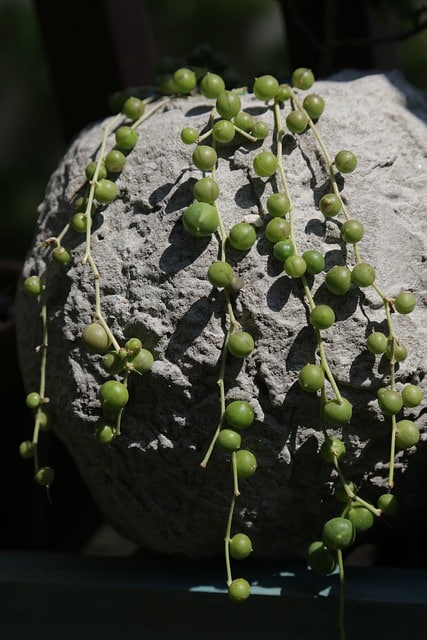
Simply put – cats and string of pearls plants don’t go well together. All parts of this plant are toxic to cats and can cause liver failure when ingested. So, just don’t bring a string of pearls succulent home if you have a cat.
Do you know?
You can find a complete list of all plants toxic to cats, dogs and horses at aspa.org
Read related:
What to do if your cat ate a poisonous plant
If your cat has ingested a poisonous succulent or another toxic houseplant, you should contact:
- Your local veterinarian, or
- ASPCA Animal Poison Control Center Phone Number: (888) 426-4435 (it’s your best resource for any animal poison-related emergency, 24 hours a day, 365 days a year).
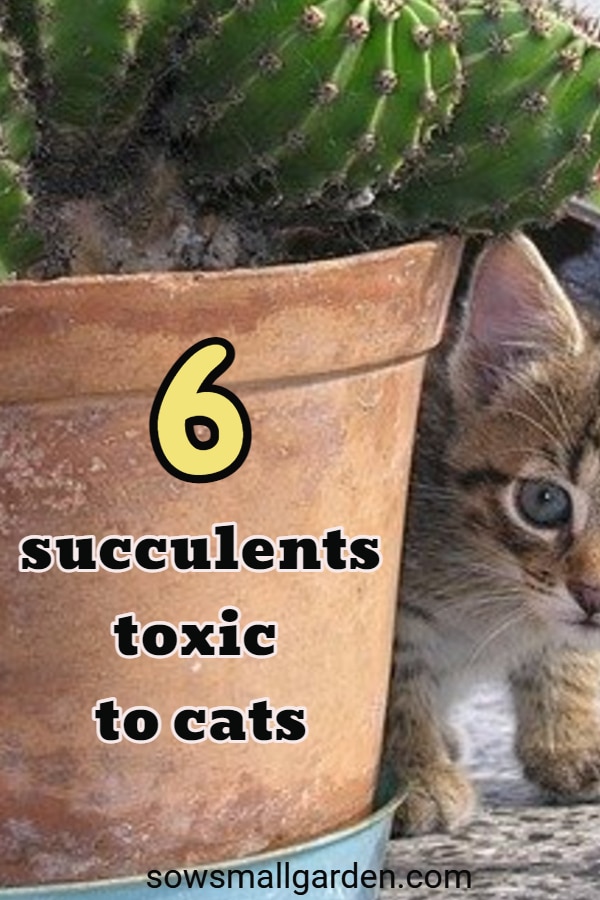
Final thoughts on succulents toxic to cats
here you have it – a list of six succulents that are toxic to cats, along with descriptions of how they can impact cat health when consumed.
While these succulents may be visually appealing, it’s crucial to understand the potential risks they pose to our feline friends. From gastric upset to more serious health issues, such as abnormal heart rhythm, it’s important to keep these plants out of reach from curious cats to ensure their well-being and overall safety.
You have read:


